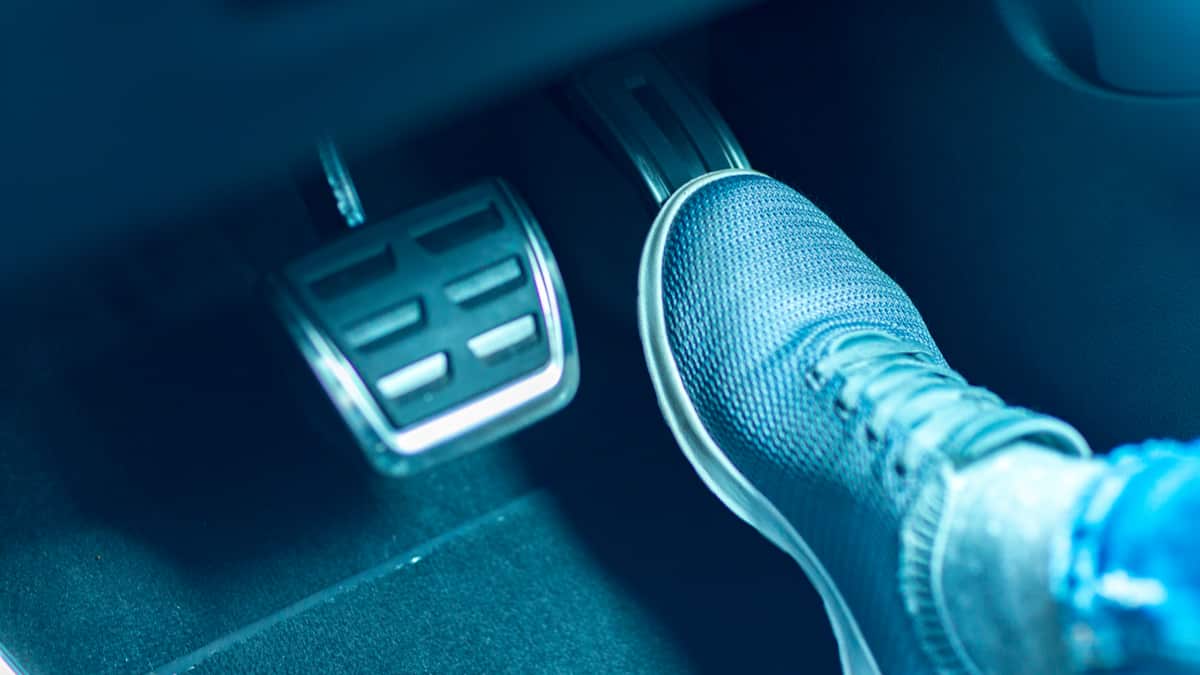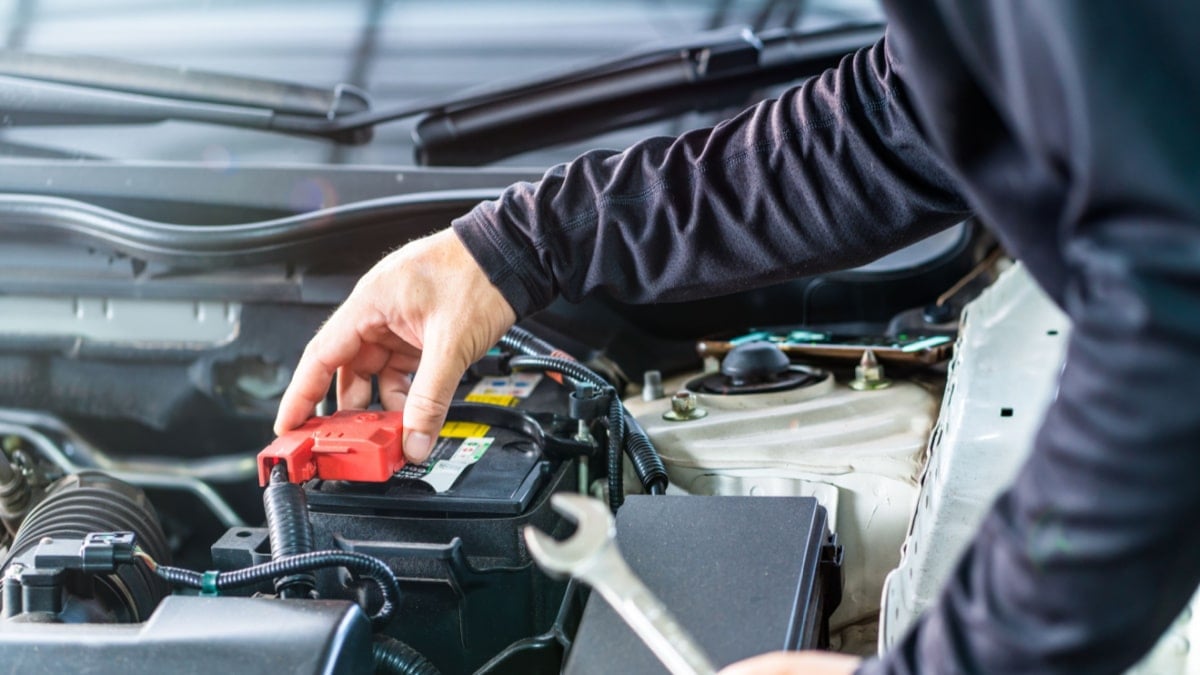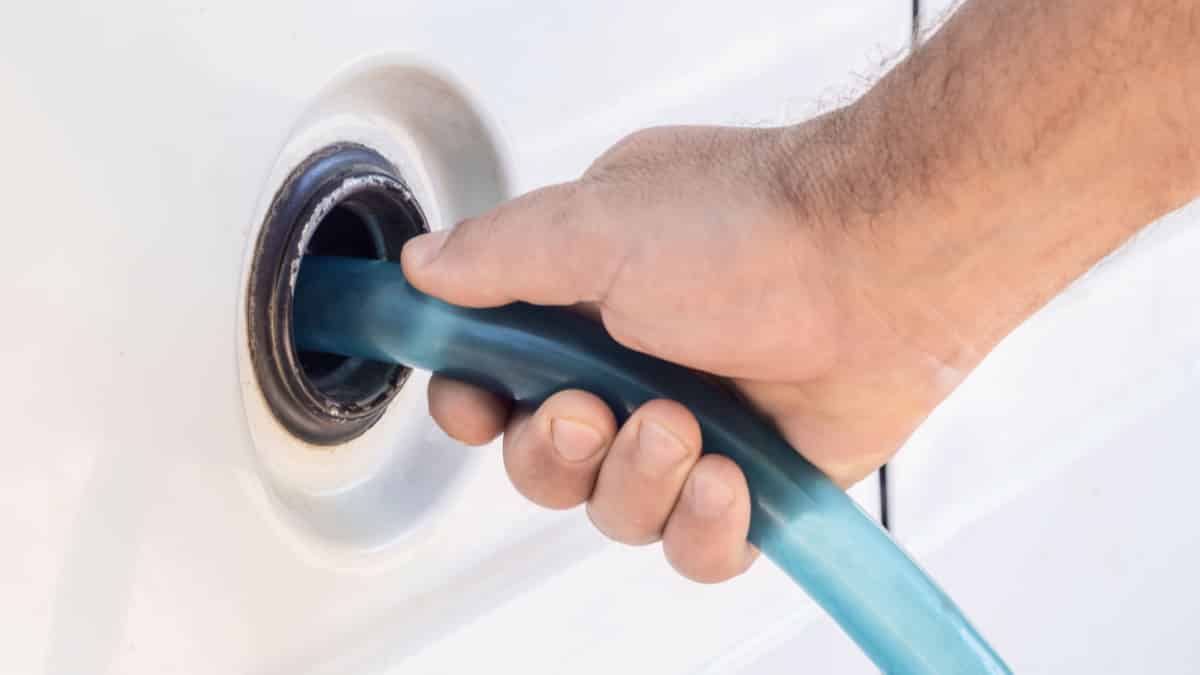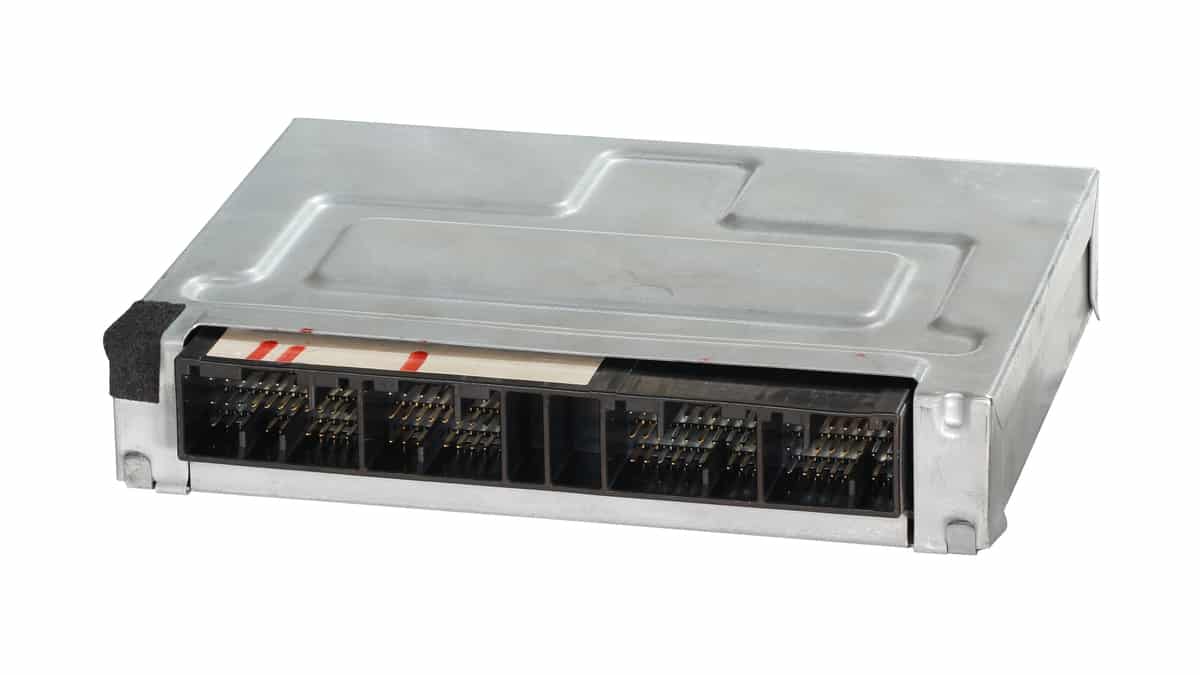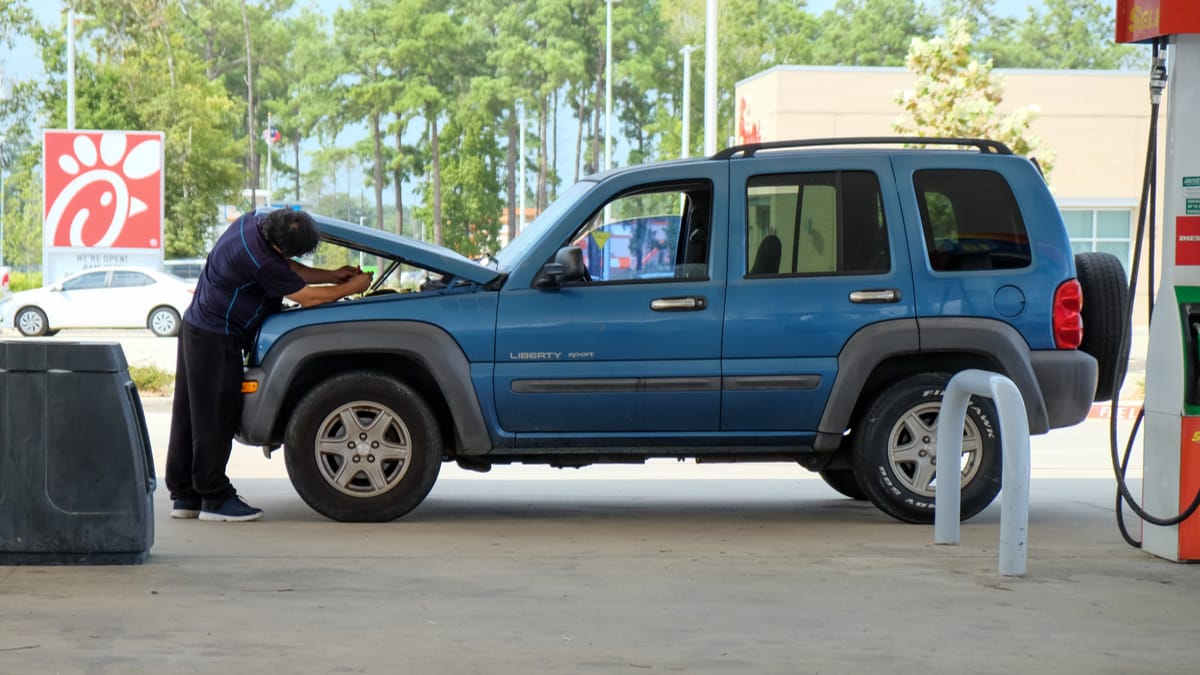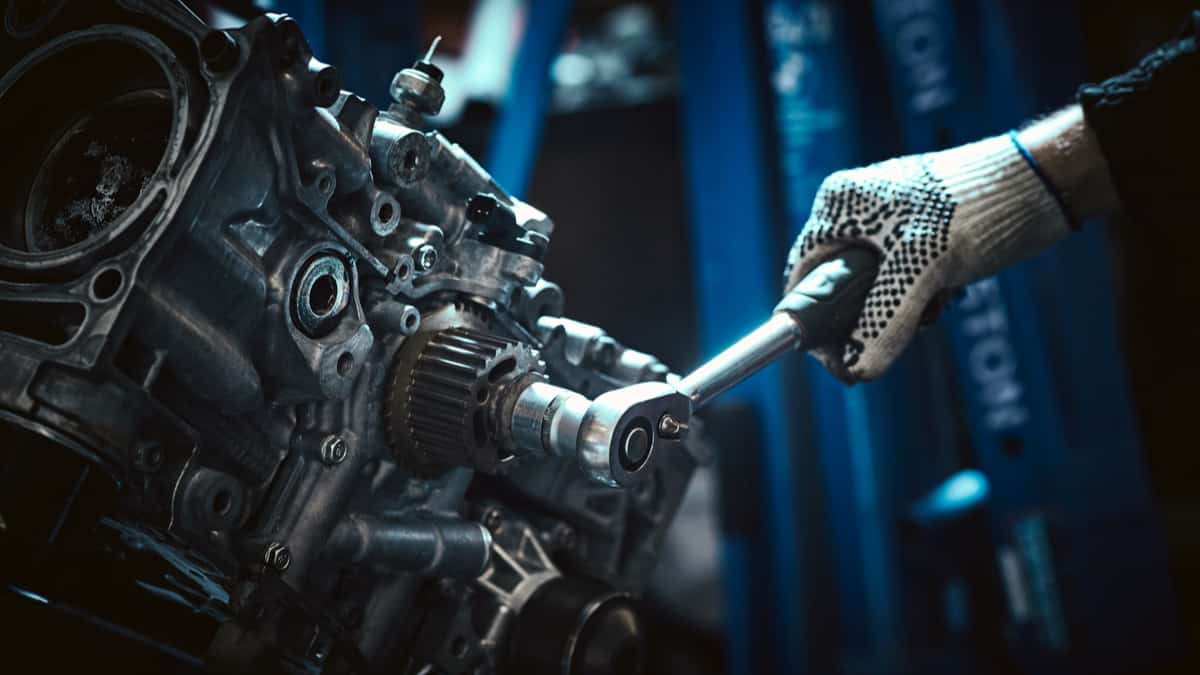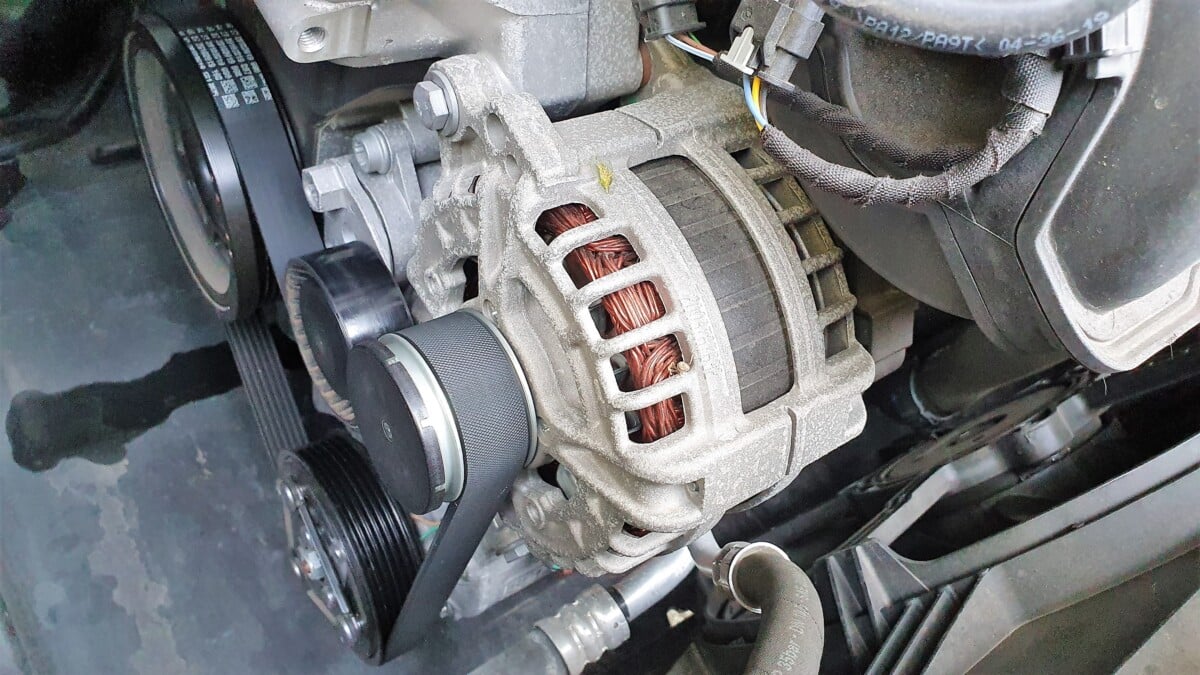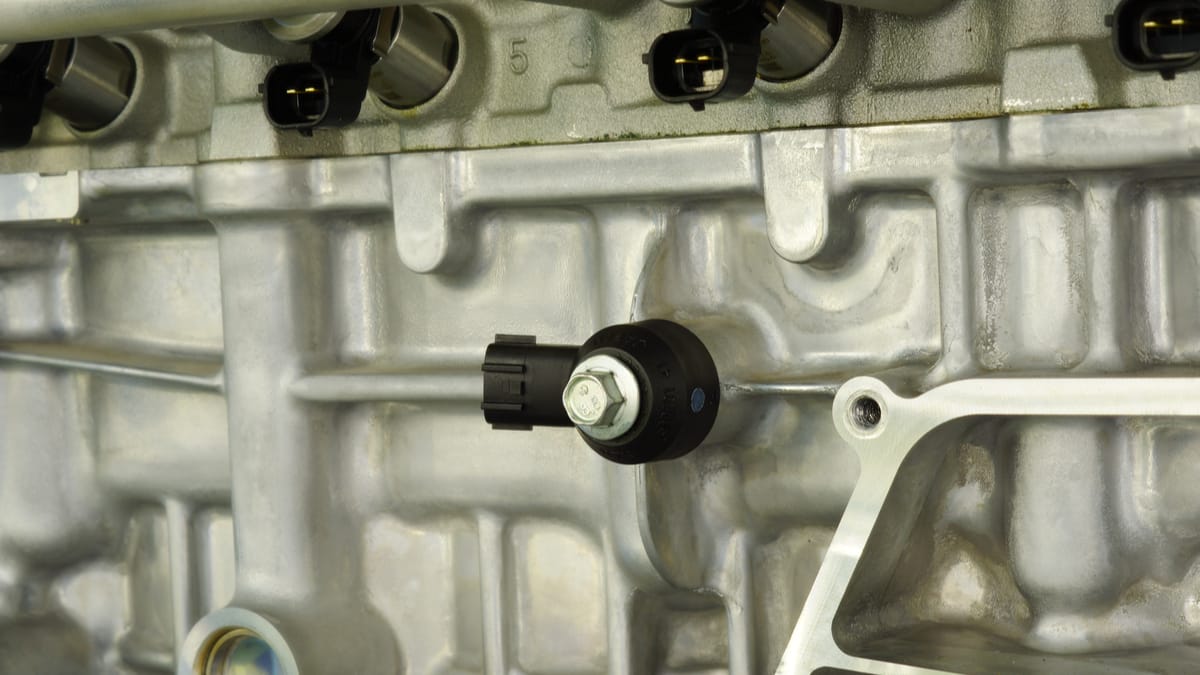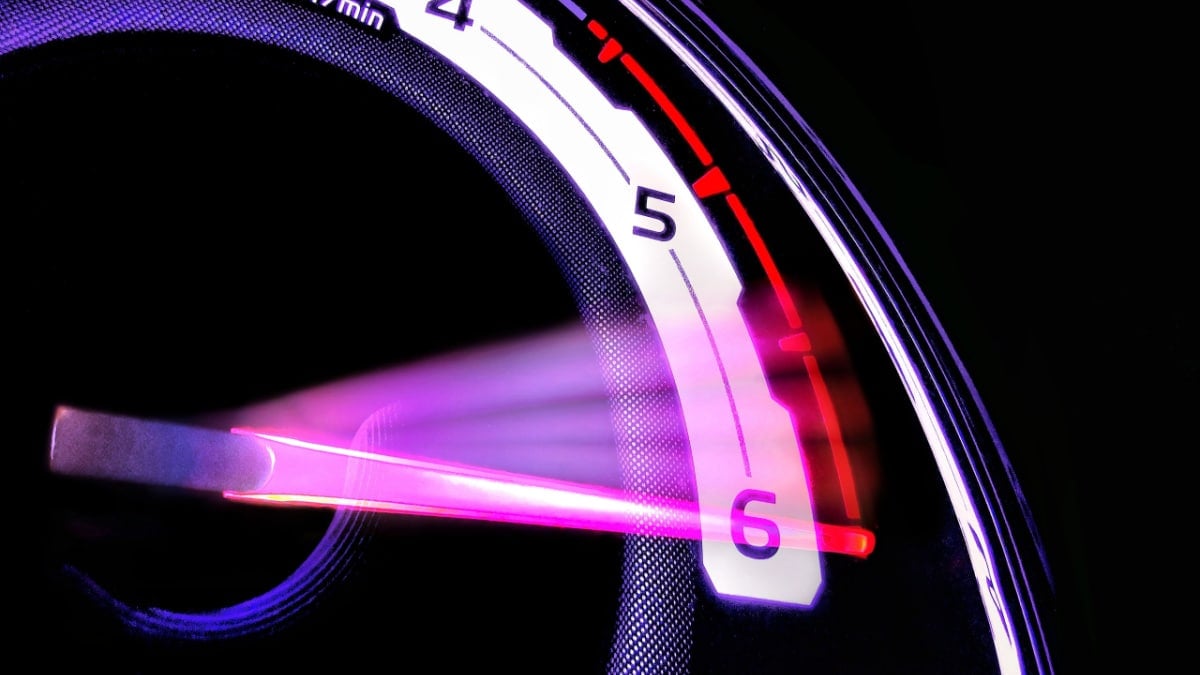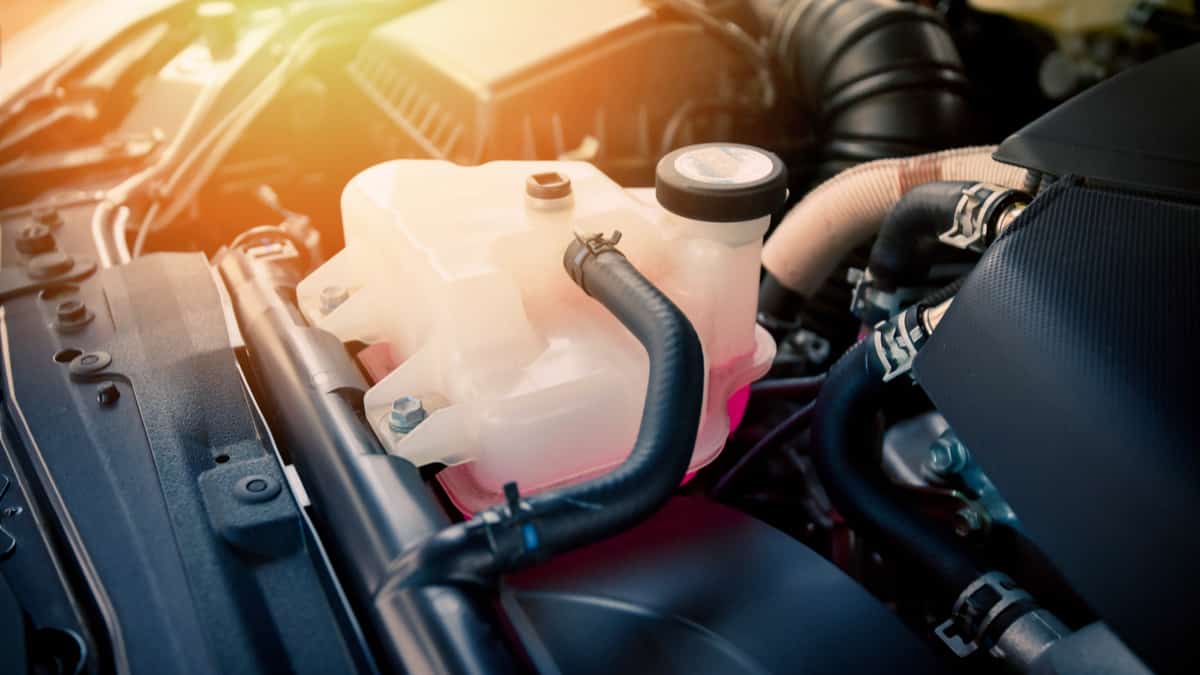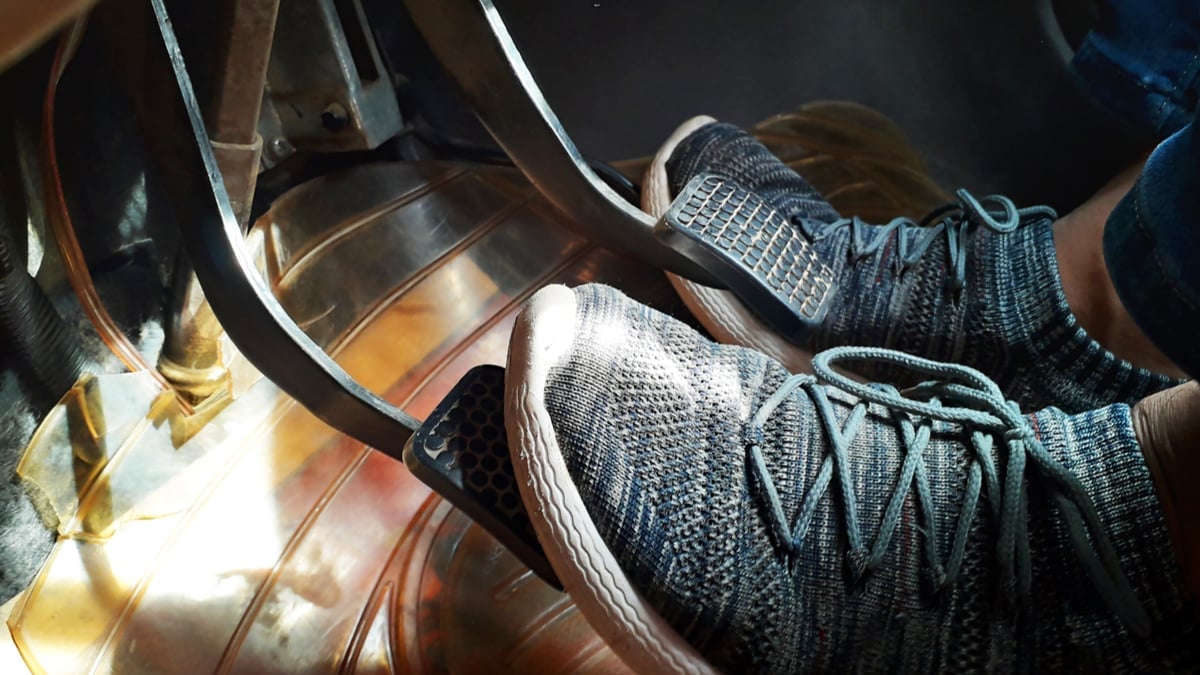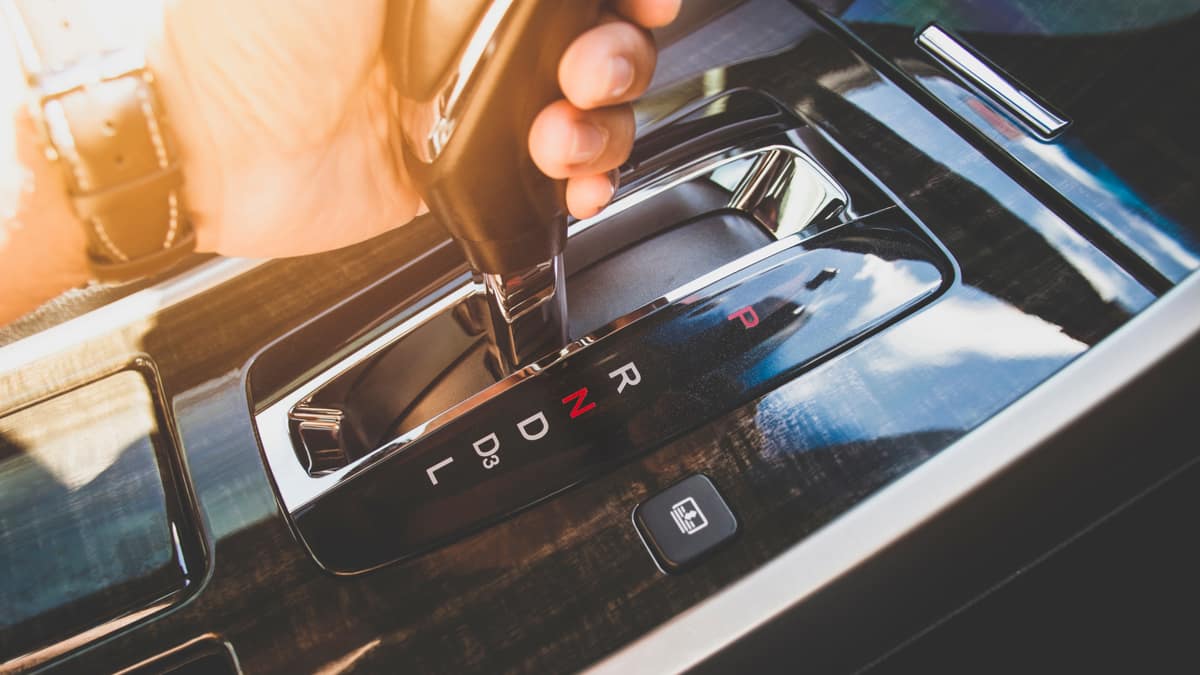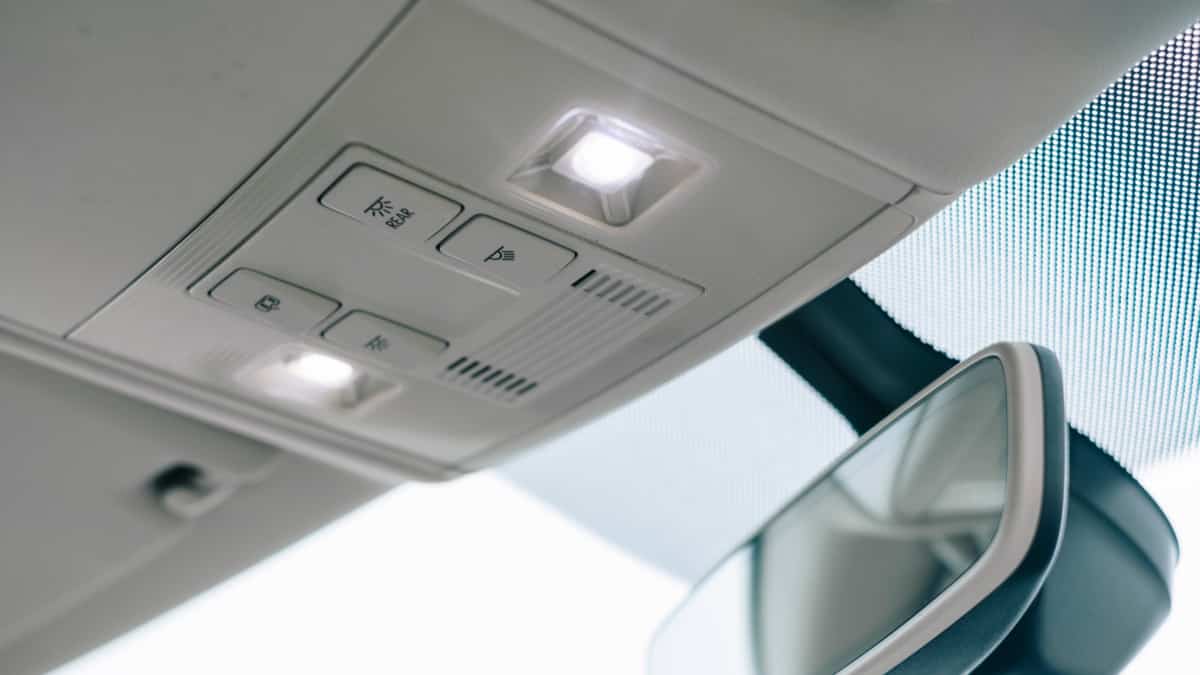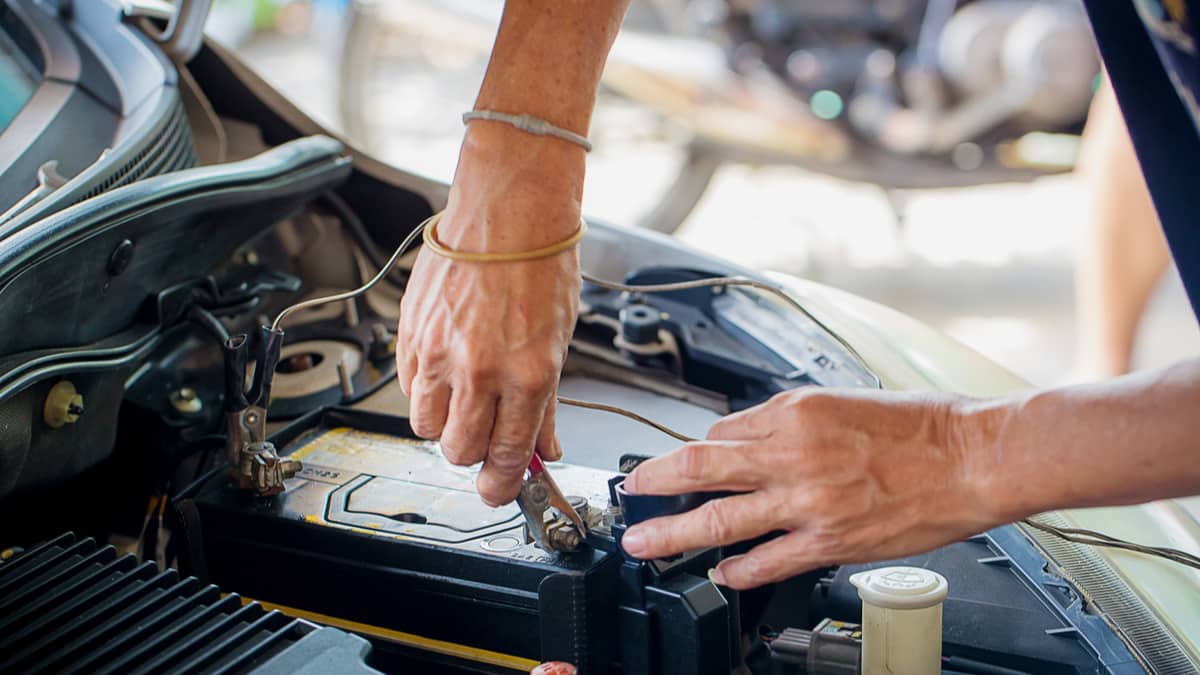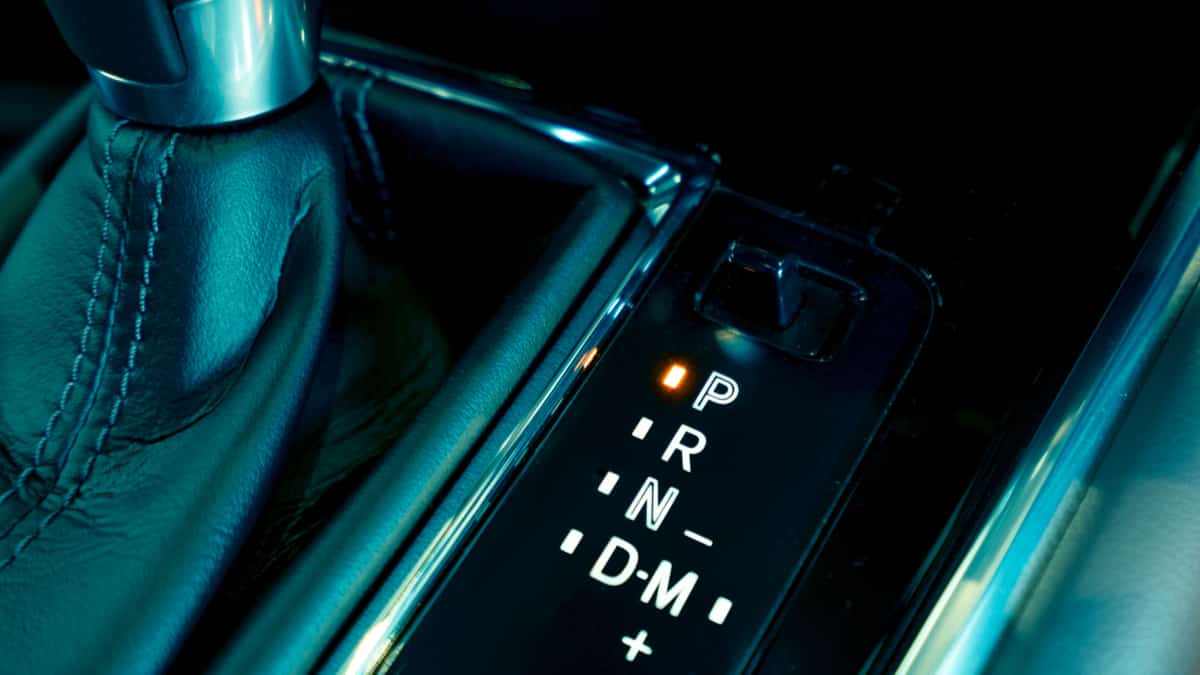Problems with the acceleration in your car are never a good sign, because it tells you that something is wrong with either the air-fuel mixture or the ignition.
How should you start diagnosing the problem if your car won’t accelerate? In this article, I will go through the most common reasons why your car won’t accelerate. Let’s begin with a quick overview of the possible causes.
Why Won’t My Car Accelerate?
The most common reason why a car won’t accelerate is due to a faulty throttle body or a faulty air-fuel mixture. A faulty air-fuel mixture could be caused by a bad MAF sensor, clogged fuel filter, clogged air filter, or a faulty fuel pump. Ignition issues can also cause it.
While these are far from all of the possible reasons, it’s a good start. Here is a more detailed list of the 8 most common causes why your car won’t accelerate:
1. Dirty or Damaged Mass Air Flow Sensor
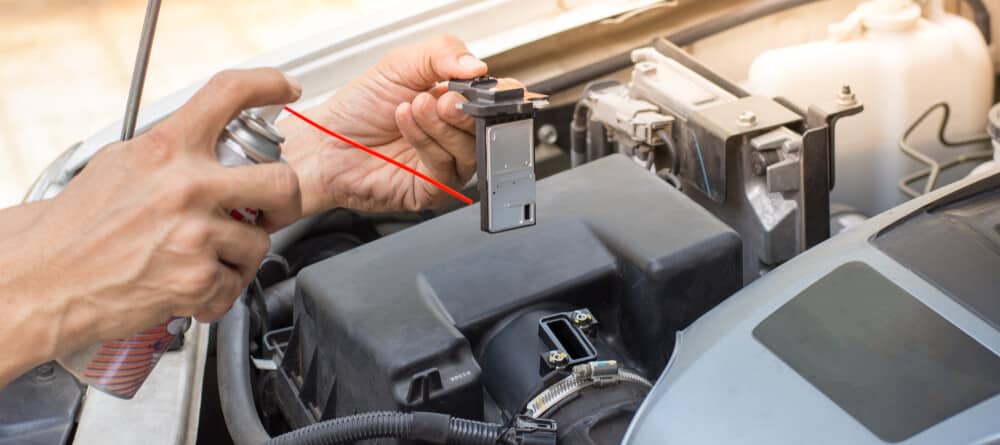
The most common cause of a car that won’t accelerate is a lean air-fuel mixture. The mass airflow sensor measures the air entering the engine, and the engine control unit then calculates how much fuel should be injected into the engine.
Commonly, this sensor gets dirt if you have an open-air filter or haven’t changed the air filter in a while.
If this MAF sensor gets dirty or damaged, it will measure too little air entering the engine, and therefore you may have problems with a lean mixture.
You can often clean the MAF sensor to make it functional again. Remove the sensor and carefully clean it with an electric cleaner.
You can learn more about bad MAF sensor symptoms here: bad MAF sensor symptoms
2. Clogged Fuel Filter
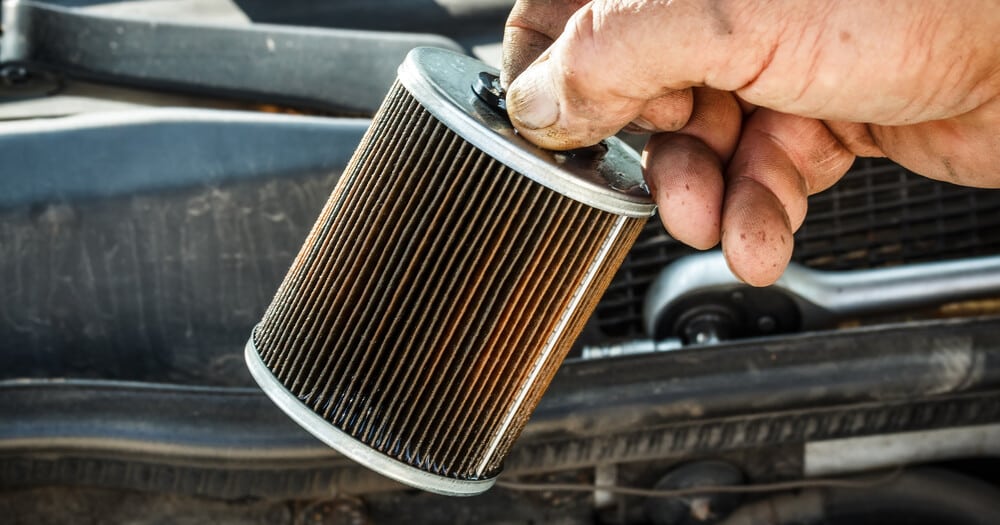
The fuel filter is installed after the fuel pump, ensuring that no dirt will come into the fuel system and destroy parts like the fuel injectors.
If you haven’t replaced the fuel filter in a while, the filter might restrict the fuel flow and create low fuel pressure. Low fuel pressure will then cause a lean mixture in the engine, which causes acceleration problems.
The fuel filter is often easy and cheap to replace, so if you haven’t done so in a while, it is definitely time to replace it.
3. Clogged Air Filter
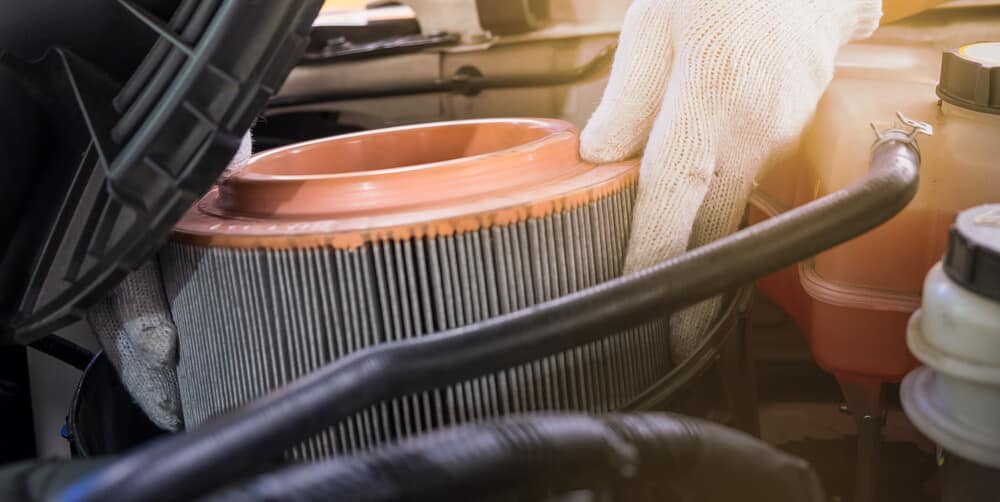
The air filter ensures that no dirt or other particles enter the engine and destroy sensitive parts and sensors. The air filter should be replaced according to a schedule, which depends on your car model and engine.
The engine needs air to breathe, and if the air filter is too clogged so it will restrict the airflow, it may choke the engine, so it will not be able to accelerate over a specific speed.
4. Failed Throttle body valve
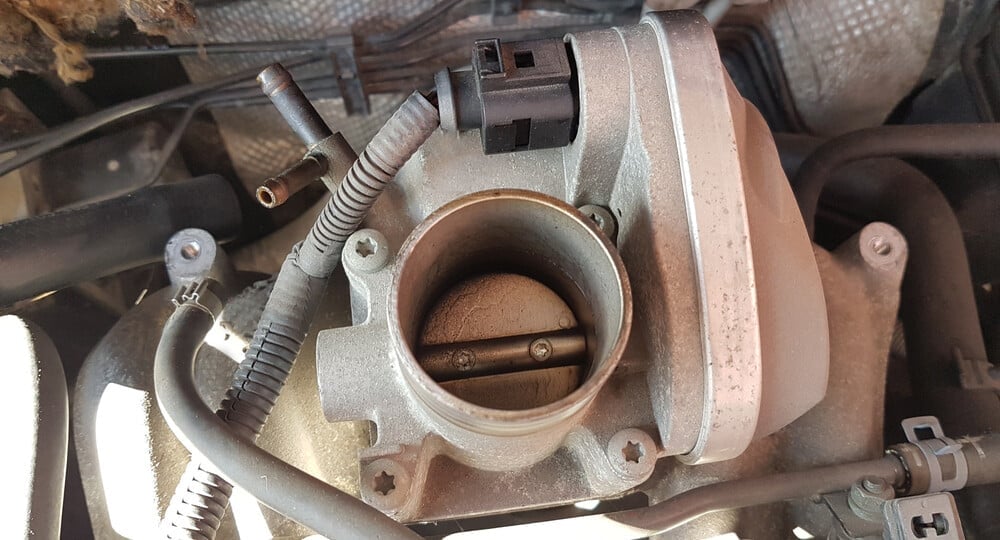
When you press the accelerator pedal, a flap is opening to let more air go into the engine. This is called the throttle body.
If there are any problems with the throttle body valve, you might experience limited power because the valve may not open fully.
If there are any problems with the throttle body, it will often light up the check engine light.
5. Ignition problems
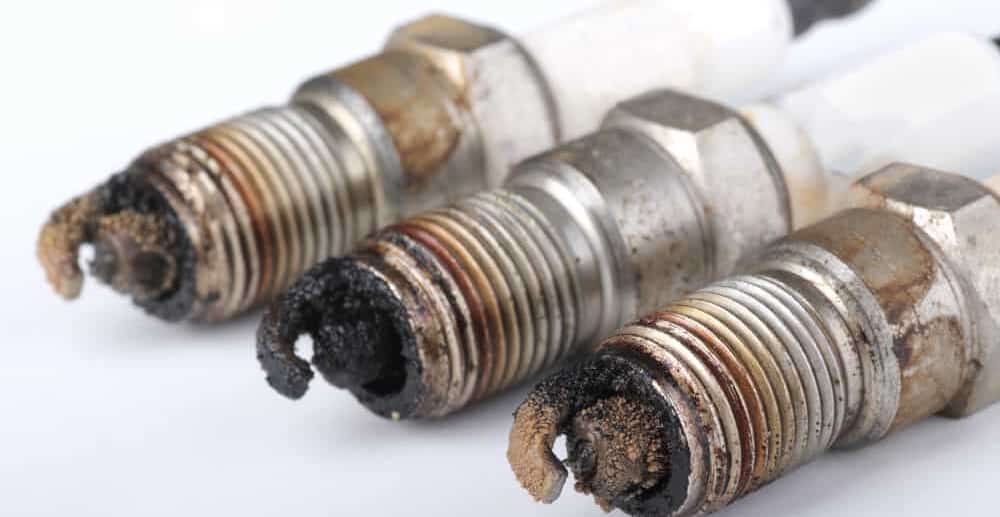
It is not only the air-fuel mixture that can mess with your acceleration. To have a powerful engine, you also need a good spark. If there are any problems with parts in the ignition system like the spark plugs or the ignition coils, there might be a problem with acceleration.
When you have any problems with the ignition, you may notice it as a misfire. If your car sounds slightly different and has a very rough acceleration, that could be caused by misfires.
Misfires are when the ignition fails, and unburnt fuel is exiting the exhaust system. Misfires are often caused by bad spark plugs or bad ignition coils.
You may also check the ignition timing if it is manually adjustable on your car model. Late ignition timing may cause your car to become very weak.
6. Faulty Fuel Pump
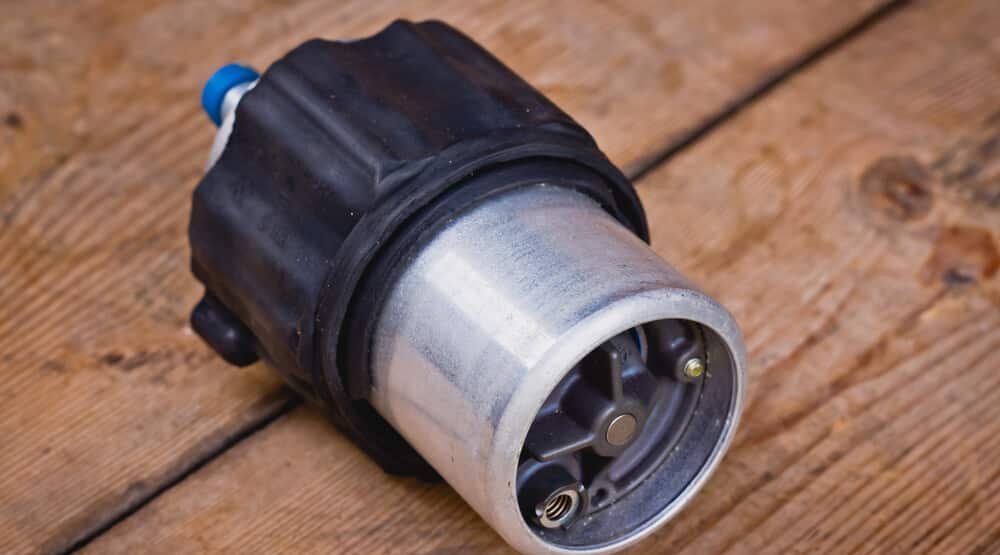
The fuel pump is delivering fuel to the engine. The fuel pump builds up pressure in the fuel rail when the engine is running to make sure there is always fuel there if the engine needs it.
If the fuel pump goes bad, it may cause low fuel pressure, resulting in a loss in acceleration. If you have any trouble codes stored in the engine control unit about low fuel pressure, a bad fuel pump could be at fault.
7. Faulty Camshaft Timing
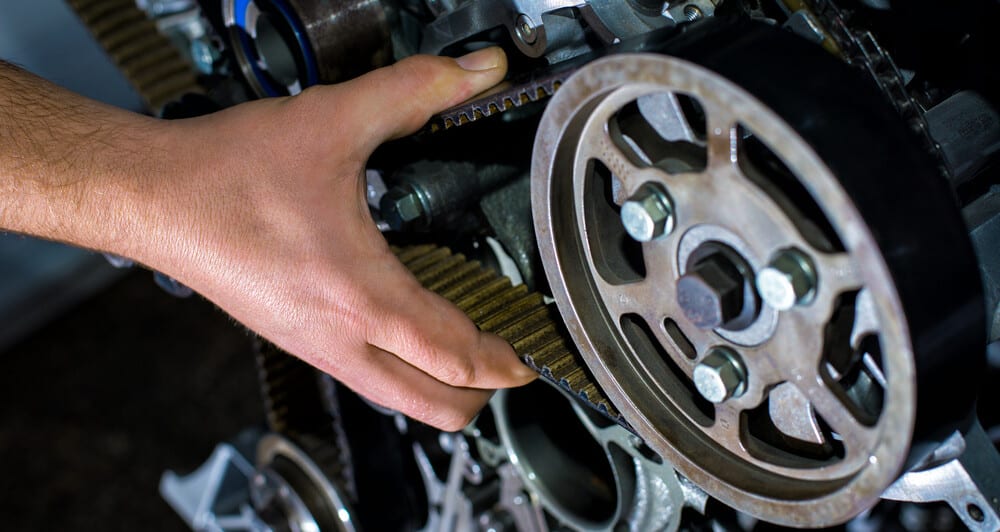
Did anybody replace the timing belt or chain on your car recently, and the car became slow after that? If someone is installing the timing belt or chain incorrectly, or it happens by accident, your car will often become very slow and powerless.
If the timing belt has jumped over without reason, you need to investigate the problem as soon as possible, because a failing timing belt or chain can cause the whole engine to be destroyed.
8. Limp Mode
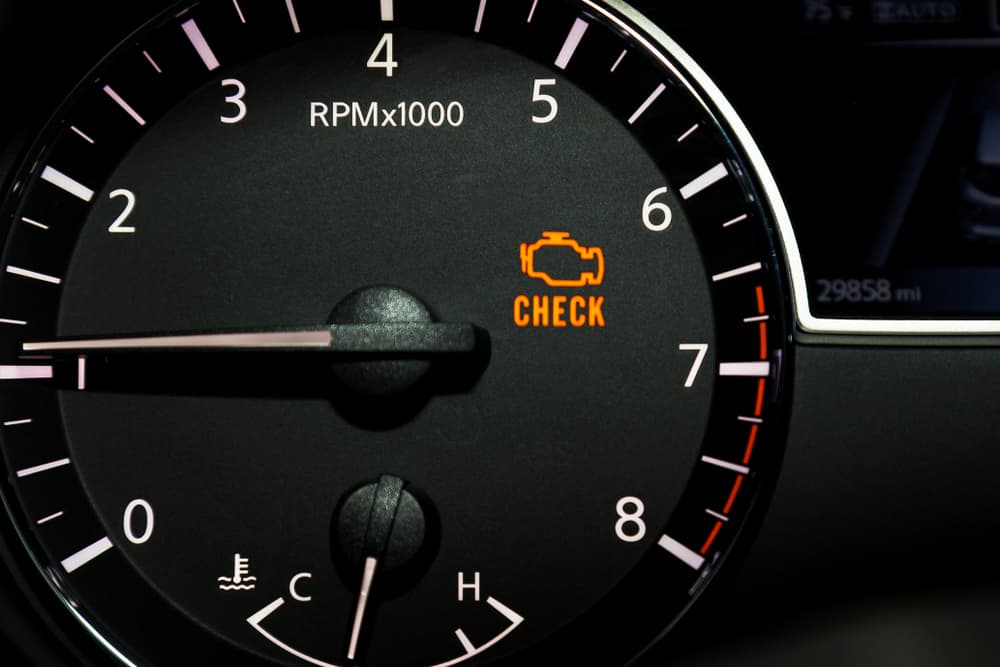
Limp mode is activated when the engine control unit recognizes a very wrong parameter from any sensor. This can often be caused by overboost by the turbo or similar.
Limp mode often restricts the engine’s RPM and power. If you have an automatic transmission, it can also stop the transmission from shifting over 3rd gear.
Limp mode is a very common reason why your car isn’t accelerating, and if you notice this symptom together with a check engine light, it is definitely time to check the trouble codes.
You can read more about limp mode here: Limp mode causes and symptoms
How to diagnose a car that wont accelerate?
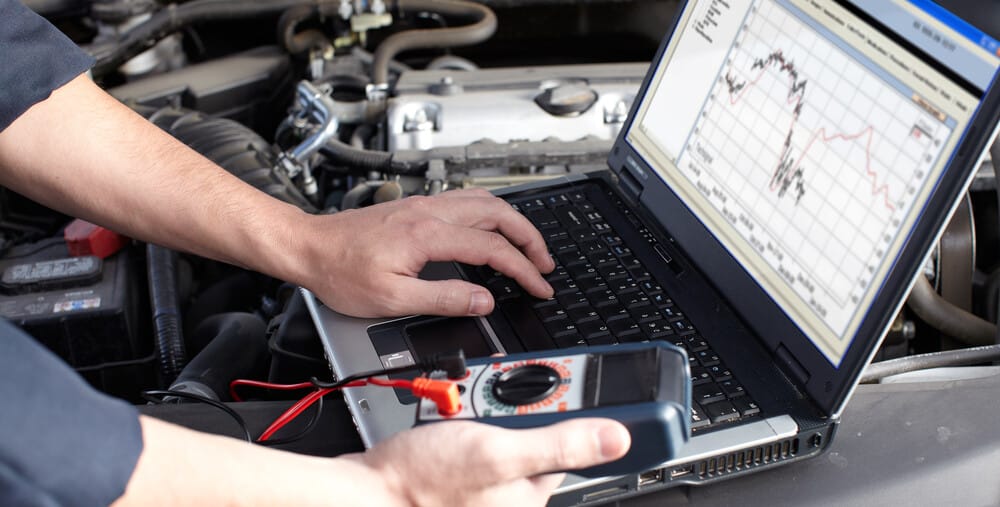
Diagnosing a car that won’t accelerate is quite easy if you have the tools and experience. Here is how a professional would diagnose this problem. You might need some special tools to follow this guide, though.
- Connect an OBD2 scanner and check for any trouble codes and related trouble codes. Continue troubleshooting with the trouble codes you will find. There are a lot of troubleshooting articles on this website that are written to help you with specific trouble codes. If you did not find any trouble codes, you could continue.
- Check the live data in the diagnostic tool while someone else is accelerating the car. Look for the turbo pressure and airflow when accelerating. Check all other values and continue the troubleshooting of the faulty sensor if you find any strange values.
- Check the MAF airflow sensor and clean it with an electric cleaner.
- Check the air filter and replace it if it is dirty.
- Check the fuel pressure with a fuel pressure meter. Check and replace your fuel filter or fuel pump if the pressure is too low.
- Check for any leaks with an EVAP smoke machine. Check the function of the PCV valve. Repair any leaks and try again.
- Check the conditions of the spark plugs and ignition coils. Replace if faulty or in bad condition.
- Check the camshaft timing. Replace or correct the timing if it is faulty.
Categories: Driving, Troubleshooting
